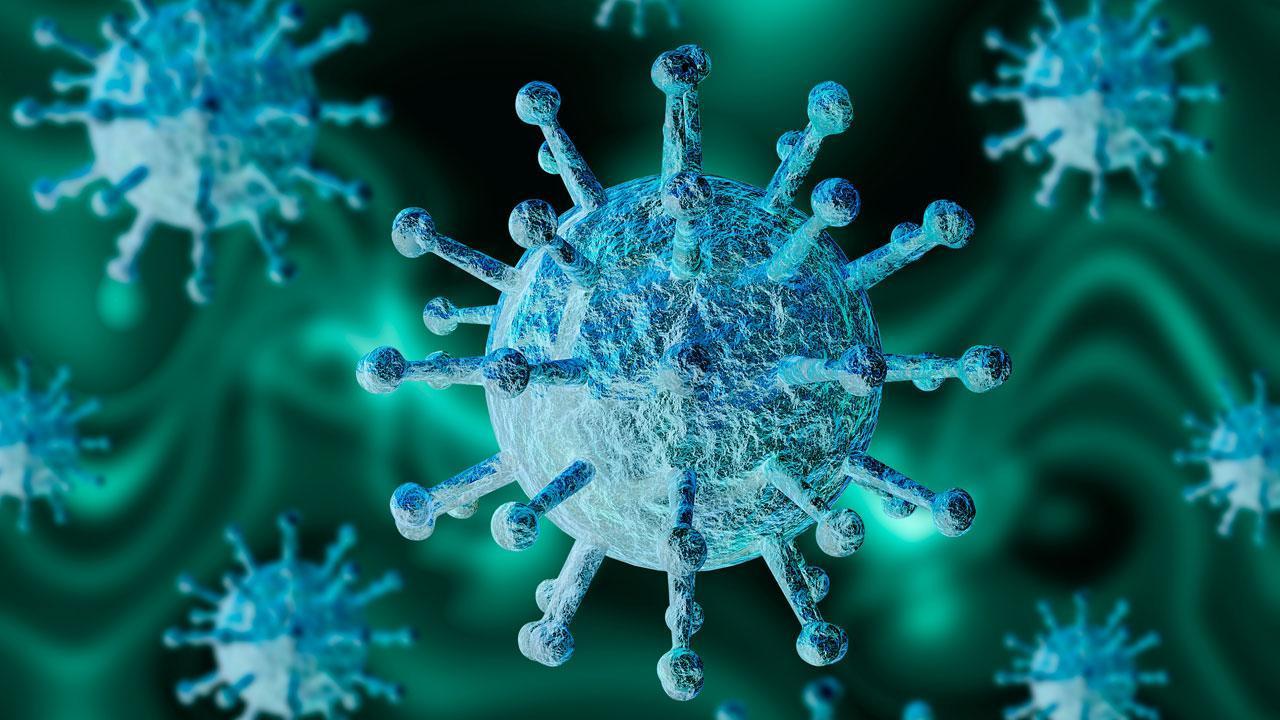The discovery highlights SARS-CoV-2's tactics to boost its infectivity, offering a blueprint for potential treatments, and suggests that other viruses might use similar strategies of co-opting host defences

Representation Pic
Scientists have uncovered a cunning strategy that SARS-CoV-2, the virus that causes Covid-19, uses to increase its infectivity.
The team at Ecole Polytechnique Federale de Lausanne (EPFL) in Switzerland focused on the virus's notorious spike protein, which allows it to enter and infect human cells.
Upon infecting a host, SARS-CoV-2 manipulates its cellular machinery to modify an enzyme that then turbocharges spike's ability to invade other cells. The enzyme, abbreviated as ZDHHC20, normally tags proteins with a little fat molecule that changes the way they work.
But upon infection, the virus takes over the ZDHHC20 enzyme, revealed the research published in the journal Nature Communications.
"In our previous work, we discovered the enzyme that modifies the SARS-CoV-2 spike protein -- it adds lipids to it -- and this is essential for the virus to fuse with target cells," said Gisou van der Goot at EPFL's School of Life Sciences.
"What we now show is that the virus actually triggers an optimisation of the enzyme by inducing a change in the transcription of its gene," van der Goot added.
Analysing the effects of SARS-CoV-2 on the gene (zdhhc20), the researchers found that the virus triggers a change in its transcriptional start site -- the part of a gene where the process of "reading" it into a protein begins.
Studying both cells in the lab and live organisms, they confirmed that this "transcriptional change" produces an enzyme with 67 additional amino acids. This is enough to increase its lipid-adding activity on spike 37 times, leading to a heavily enhanced viral infectivity.
The team also used metabolic labelling, Western blotting, and immunofluorescence to visualise and quantify proteins, and get a comprehensive view of the virus's manipulative tactics.
Digging deeper, the researchers found that this change in the transcriptional start of genes seems to be something cells normally do in response to stresses or challenges -- in the case of the study, chemically induced colitis.
What this means is that SARS-CoV-2 hijacks a pre-existing cell damage response pathway to generate more infectious viruses.
The discovery highlights SARS-CoV-2's tactics to boost its infectivity, offering a blueprint for ,potential treatments, and suggests that other viruses might use similar strategies of co-opting host defences.
Additionally, the findings indicate that the cellular response the virus leverages could be a general reaction to various stresses, which expands the study's findings beyond viral infection.
This story has been sourced from a third party syndicated feed, agencies. Mid-day accepts no responsibility or liability for its dependability, trustworthiness, reliability and data of the text. Mid-day management/mid-day.com reserves the sole right to alter, delete or remove (without notice) the content in its absolute discretion for any reason whatsoever
 Subscribe today by clicking the link and stay updated with the latest news!" Click here!
Subscribe today by clicking the link and stay updated with the latest news!" Click here!










